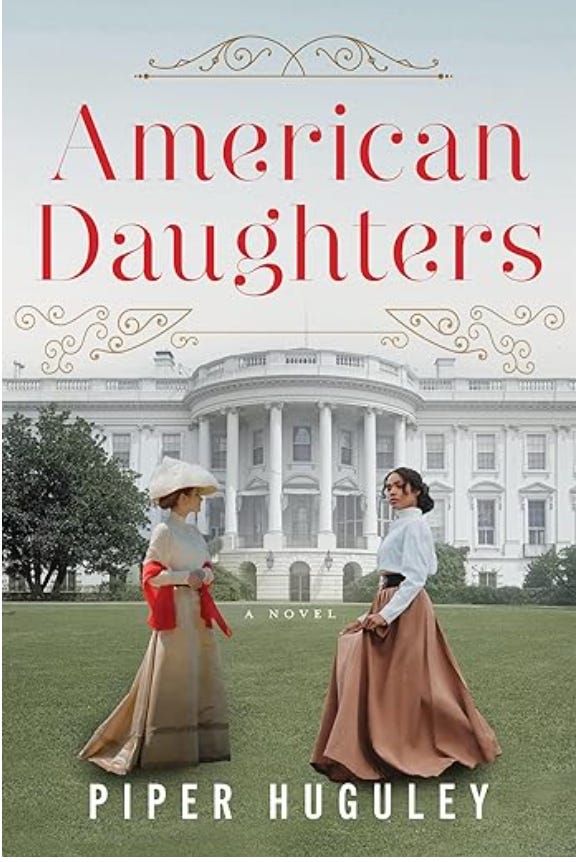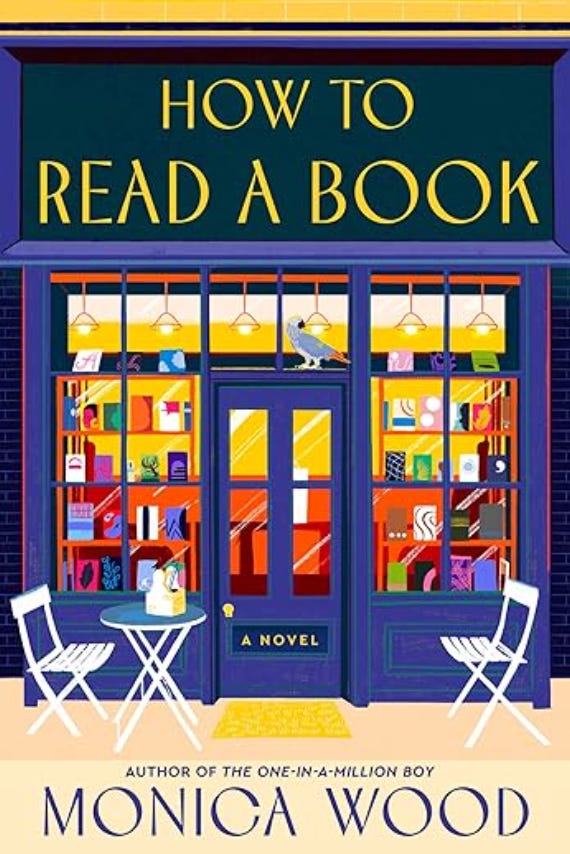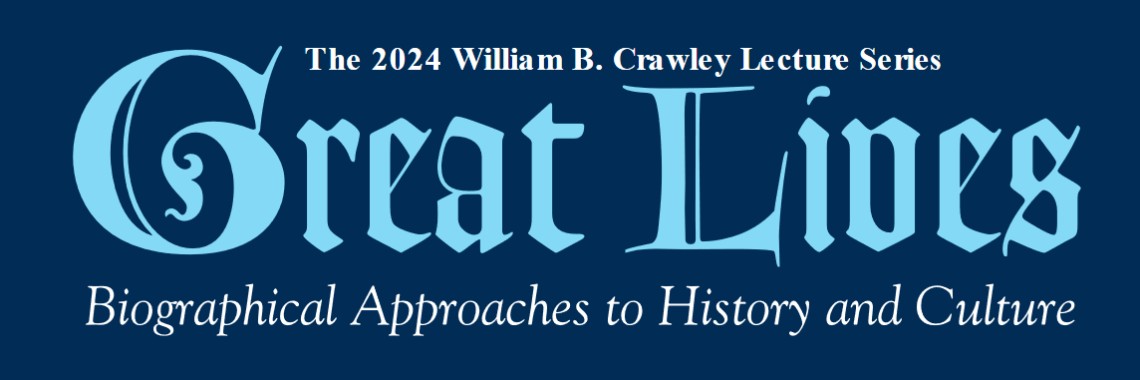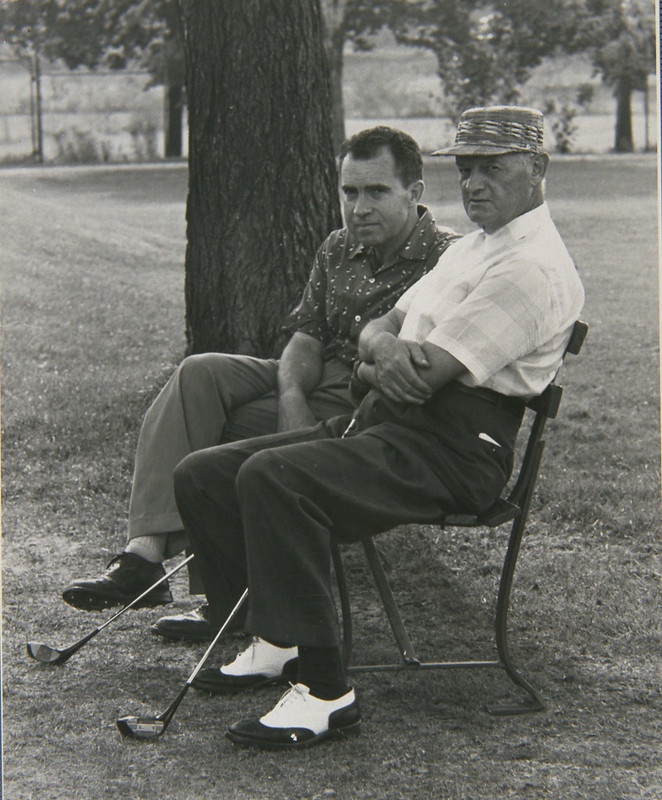
This week’s reviews include imaginative historical fiction in Piper Huguley’s “American Daughters” and Monica Wood’s novel of healing and forgiveness “How to Read a Book.”
AMERICAN DAUGHTERS
by Piper Huguley

Published by William Morrow Paperbacks (April 2, 2024)
Paperback $16.18
Audiobook $22.04
Reviewed by Penny A Parrish
On October 16, 1901, President Theodore Roosevelt invited Booker T. Washington to dine with him and his family at the White House. A dinner between a former slave and the President of the United States! The nation went wild. The U.S. was still in mourning over the assassination of William McKinley, and the new man in the White House caused a racial controversy that lasted for years.
But the men had some things in common. Both suffered from the loss of their young spouses. Both were well educated and interested in improving racial relations. And both had teenage daughters who had minds of their own.
Alice Roosevelt was born on February 12, 1884. Two days later, on Valentine’s Day, her mother and grandmother died. Although named after her mother, her father never called her by name, as memories of his loss permeated their relationship. When Roosevelt remarried, Alice had siblings but always felt like an outsider and a rebel. She had two goals. One, to be a socialite, known for wearing her “Alice Blue Gowns” which mirrored the color of her eyes. And two, to help her father navigate politics and the White House. She married Nicholas Longworth III of Ohio who eventually became Speaker of the House. But the marriage was an unhappy one and Alice had a long-term affair with Idaho Senator William Borah with whom she had a daughter. In an ironic twist, Paulina was born on Valentine’s Day.
Portia Washington was born June 6, 1883 to Booker T. and Fannie Smith Washington in Tuskegee, Alabama. Her father founded the famous Tuskegee Institute, and wrote the best- selling book Up From Slavery. She was musically inclined from a young age, and even studied in Germany. Portia married architect William Sidney Pittman, with whom she had three children. This marriage was not only unhappy but abusive, and after several years, she divorced her husband. She supported herself by giving music lessons, and focused on keeping her father’s legacy alive.
This book takes these two headstrong, educated, and amazing women and creates a friendship between them. My problem with the book is that although both women are fascinating, there is scant information showing that this really happened to the extent cited here. The author found three texts with brief mention of their friendship. In her notes at the end, she admits the story is a “reconstruction of my imaginings.”
I admire her purpose: “My hopes are that in reading a reconstruction of their relationship, more of us might make the effort to understand what we have in common instead of keeping our relentless focus on how we differ.” In this racially and politically charged world, these intentions are good. But I felt misled by not knowing this from the outset.
Penny A Parrish is a long-time book reviewer and artist. Learn more about her by visiting her page at Brush Strokes Gallery, which is in downtown Fredericksburg.
HOW TO READ A BOOK
By Monica Wood

Published by Mariner (May 7, 2024)
Hardcover $25.20
Audiobook $22.05
Reviewed by Ashley Riggleson
If you are looking for a book that is both charming and poignant, intellectually stimulating, and emotional, then look no further. Monica Wood’s new novel, How to Read a Book, is the whole package.
Readers follow an engaging cast of characters, all of whom are guaranteed to stay in your heart well after the final page is turned. First, there is Violet, a young woman who is in jail for killing a woman driving while intoxicated. While Wood in no way condones this behavior, readers find in Violet a sympathetic character who is filled with remorse and regret. She finds solace in the prison book club, where she and her fellow inmates meet to discuss literature with Harriet. Harriet is a compassionate woman who struggles with the transition to her new identity as an “empty nester.” Her mission in running the book club is to encourage and empower these women, and when Violet is released early for good behavior, Harriet takes a deeper interest in her life.
In the background of all of this is the local bookstore. Here, both women meet Frank. Frank’s wife died due to Violet’s actions, and while Frank is “supposed” to be overcome with anger and sadness at the loss, he instead feels a bewildering mix of emotions, among them relief. His unhappy marriage is done, and he finds that, with his wife gone, he can now look towards the future. As the three of them interact with each other, each character begins to heal and can let go of their grief and regrets.
Underpinning all of this is the deep sense that love heals all wounds and the idea that a good book can change a life.
From the description of this novel, I am sure readers can tell that Wood also uses this framework to discuss some very complex issues, ranging from the flaws in the prison system, to the enduring power of literature, and much more.
Wood is also clearly unafraid to dive into the moral gray areas of life, and she maintains a difficult balance. How to Read a Book delves into some pretty dark places, but never without losing its focus on healing and love.
My one complaint about a novel like this is that often I find them too sentimental and wrapped up a little too neatly. While Wood, for me, does not quite stick the landing in these regards, I continue to love this life-affirming novel with my whole heart. Wood shows us that, as people, we can frame our own narratives and choose which parts of our lives to focus on when we tell our stories. Her book is ultimately a novel about forgiveness, both that which other people can give us and that which we can give ourselves. And I am sure that Wood’s latest will find a home in many people’s hearts.
Ashley Riggleson is a free-lance book reviewer from Rappahannock County. When she is not reading or writing book reviews, she can usually be found playing with her pets, listening to podcasts, or watching television with friends and family.
Sunday Books & Culture is Edited by Vanessa Sekinger

Local Obituaries
To view local obituaries or to send a note to family and loved ones, please visit our website at the link that follows.

Support Award-winning, Locally Focused Journalism

The FXBG Advance cuts through the talking points to deliver both incisive and informative news about the issues, people, and organizations that daily affect your life. And we do it in a multi-partisan format that has no equal in this region. Over the past month, our reporting was:
$8 a month supports great journalism
- First to report Mary Washington Healthcare’s move to close Kid’s Station Daycare
- First to detail MWHC’s taking actions that undermine the viability of the Moss Free Clinic.
- First to detail and then expose the controversy surrounding the Riverbend High School swim team
- Providing the region’s best political coverage of the upcoming 7th District Congressional race.
For just $8 a month, you can help support top-flight journalism that puts people over policies.
Your contributions 100% support our journalists.
Help us as we continue to grow!





